Maimonides
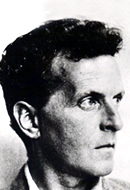 What Is Free Will?
What Is Free Will?Monday, March 18, 2013 by Simon Gordon | Jewish Ideas Daily » Daily Features
For millennia, philosophers have attempted to prove or disprove the existence of free will. Ludwig Wittgenstein saw this as a misguided exercise—which obscures a genuine moral issue.
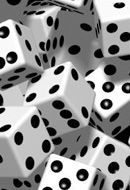 Who Says There Are No Coincidences?
Who Says There Are No Coincidences?Wednesday, March 6, 2013 by David Glasner | Jewish Ideas Daily » Daily Features
In certain Orthodox circles, the idea that there are no coincidences has become a principle of faith. But it contradicts a more fundamental Jewish doctrine: human free will.
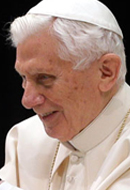 Knowing When It’s Time to Go
Knowing When It’s Time to GoThursday, February 28, 2013 by Shlomo M. Brody | Jewish Ideas Daily » Daily Features
The Talmud states, "The older Torah scholars become, the greater wisdom increases within them." Yet the Torah imposes an age limit on spiritual leadership.
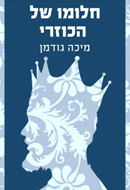 Is Judah Halevi’s Kuzari Racist?
Is Judah Halevi’s Kuzari Racist?Wednesday, February 13, 2013 by Ari Ackerman | Jewish Ideas Daily » Daily Features
A recent attempt to redeem the Kuzari from the charge of ethnocentrism raises the question as to whether Jewish texts should be reinterpreted to accord with modern sensibilities.
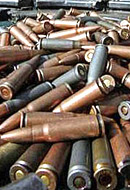 The Halakhah of Selling Arms
The Halakhah of Selling ArmsTuesday, February 5, 2013 by Shlomo M. Brody | Jewish Ideas Daily » Daily Features
Jewish law prohibits individuals from selling weapons to irresponsible or violent customers. But how does this apply to Israel's arms sales to foreign governments?
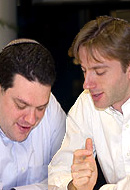 If I Forget Thee?
If I Forget Thee?Tuesday, January 15, 2013 by Allan Arkush | Jewish Ideas Daily » Daily Features
As a recent seminar at New York's Mechon Hadar testified, throughout Jewish tradition, everyone—even the anti-Zionists—recognizes that the Land of Israel has more sanctity than any other place. But what follows from that?
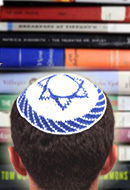 2012: A Year in Books
2012: A Year in BooksWednesday, January 2, 2013 by D. G. Myers | Jewish Ideas Daily » Daily Features
Books are dying—everyone says so—but you couldn’t prove it by the Jews. 2012 was a very good year for Jewish books: here are the best 40.
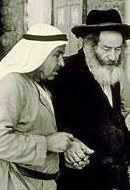 Cousins: Jews and Arabs Seek Each Other Out
Cousins: Jews and Arabs Seek Each Other OutThursday, October 18, 2012 by Moshe Sokolow | Jewish Ideas Daily » Daily Features
Absence makes the heart grow fonder. So, it seems, is the rule governing Jews and Arabs: the farther apart they are from one another, the greater their mutual interest, while the greater their proximity, the more antagonistic they seem.
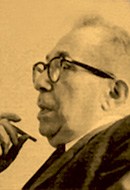 Teshuvah: Progress or Return?
Teshuvah: Progress or Return?Monday, September 24, 2012 by Jonathan Ziring | Jewish Ideas Daily » Daily Features
While in theory the blowing of the High Holiday shofar should be enough to “awaken us from our slumber” and move us to repentance, in practice most people need to look to other sources to enable them to rethink the way they live or their understanding of repentance itself.
 “I, and Not an Angel”
“I, and Not an Angel”Thursday, September 20, 2012 by Shlomo M. Brody | Jewish Ideas Daily » Daily Features
"Warning: The Following Prayer May Be Dangerous to Your Spiritual Health. Recite with Caution." When was the last time you saw this kind of warning in a prayer book? Yet in most Ashkenazic S’lihot prayer books, that is the message that actually accompanies one of the hymns.
Editors' Picks
The World's Oldest Torah Scroll , Agence France-Presse. A Torah scroll discovered in a Bologna archive was originally misidentified as a 17th-century manuscript; its true date has now been established as five centuries earlier.
The Sound of Silence Karen Armstrong, Literary Review. "Negative theology does not mean the suppression of speech; rather, it takes us through speech to another dimension of reality."
Philo's Esoteric Torah Lawrence H. Schiffman, LawrenceSchiffman.com. Influenced by the Hellenistic idea of the separation between body and soul, Philo was the first Jewish thinker to ascribe "outer" and "inner" rationales to the commandments—but by no means the last.
Mimouna: Gold and Leavened Bread Ari Enkin, Hirhurim. The traditional post-Pesach celebration by Moroccan Jews may commemorate Maimonides’ father—or the Egyptian gold that washed up on the shore of the Red Sea.
Still, Small Voice Rick Jacobs, Jewish Week. "Rationalists, such as Maimonides, and mystical poets, such as Judah Halevi, agree that at the end of the journey there is silence—that silence is the ultimate connection." (Interview by Alfredo Borodowski)
Torah from Sinai? Marc B. Shapiro, Seforim. Today, Mosaic authorship of the Torah is an Orthodox principle of faith. But, "in medieval Ashkenaz, it was not regarded as heretical to posit post-Mosaic additions."
Making Money Holy Gil Student, Torah Musings. Moses counted the Israelites by making each one contribute a half-shekel. Was the money holy because it was used for sacred purposes? Or simply because it was pure silver?
A Sweet Aroma For the Lord? Gil Student, Torah Musings. Was incense in the mishkan and the Temple intended as a way to respond to God's presence—or as a means to mask the stench of sacrificial slaughter?
Smashing the Idols Josh Yuter, Jewish Press. Has veneration of gedolim, great rabbis, become "the single greatest impediment to intelligent religious discourse in the Orthodox Jewish community"?
Misunderstanding Midrash Moshe Shamah, Jewish Ideas and Ideals. Maimonides wrote that those who take the Midrash literally "destroy the Torah’s glory and darken its brilliance," but many Orthodox teachers today do just that.

